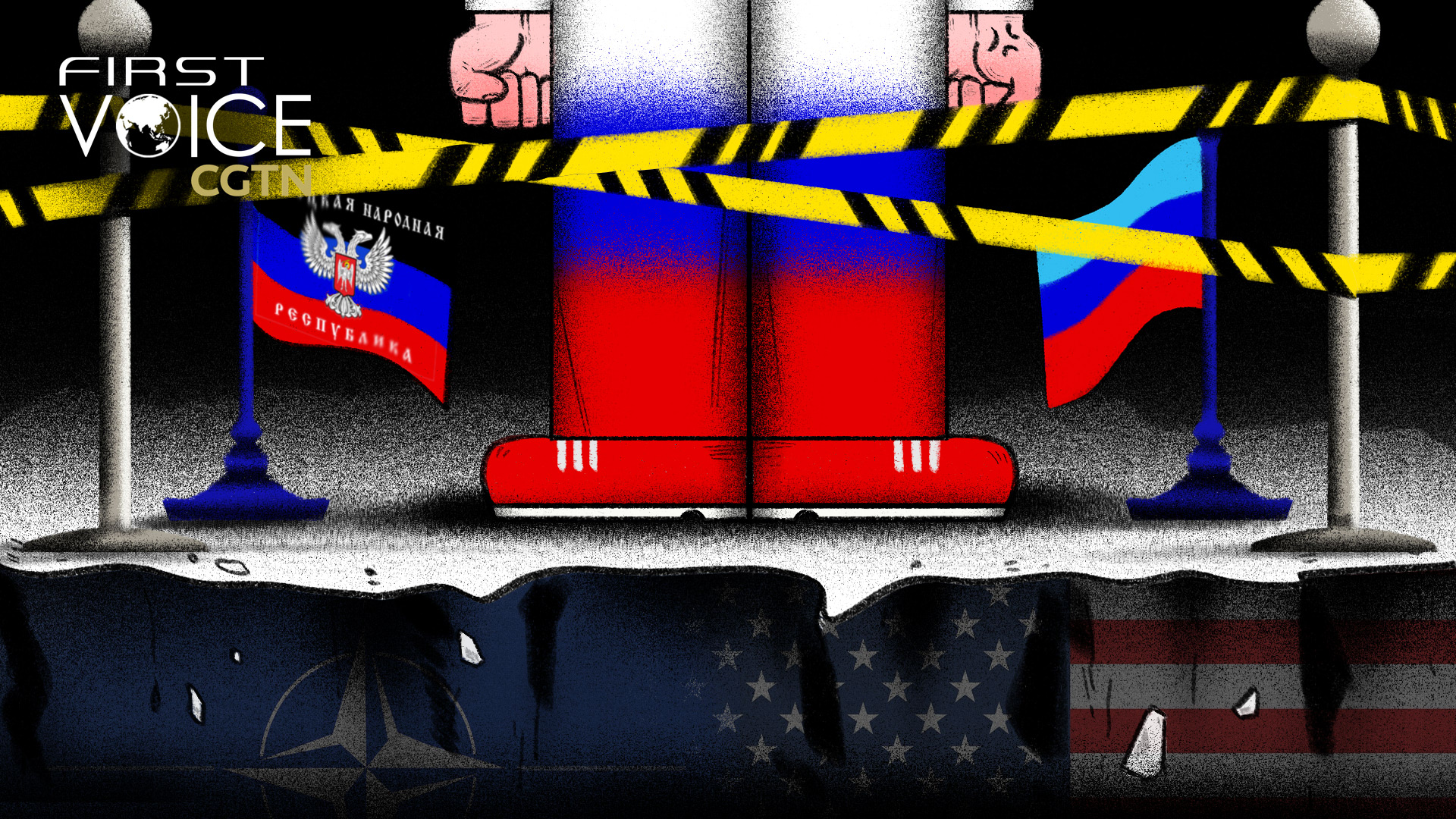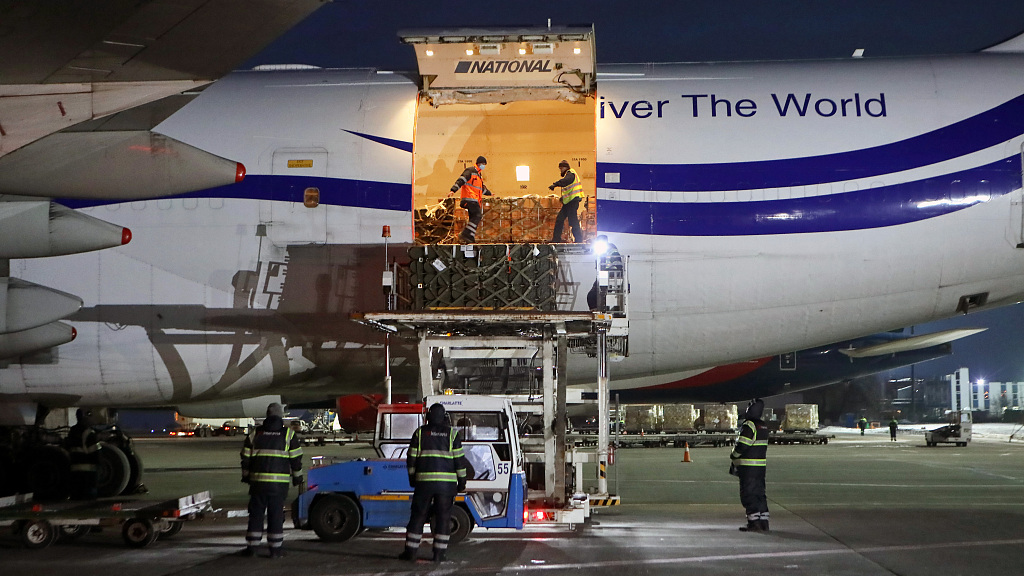
Editor's note: CGTN's First Voice provides instant commentary on breaking stories. The daily column clarifies emerging issues and better defines the news agenda, offering a Chinese perspective on the latest global events.
On February 21, Russian President Vladimir Putin signed two decrees recognizing "the Luhansk People's Republic (LPR)" and "the Donetsk People's Republic (DPR)" as independent and sovereign states. "Russia has done everything to preserve the territorial integrity of Ukraine," he said, by fighting for the implementation of the 2015 Minsk agreements. But then, Putin expressed that all the efforts have ended up in vain.
The United States has broken one of the most important geopolitical promises after the Cold War. When the Soviet Union dissolved and the Warsaw Pact collapsed in the late 20th century, America made the promise to Russia against the eastward expansion of the North Atlantic Treaty Organization (NATO). But, before the 20th century was over, Poland, Hungary and the Czech Republic became members of NATO over Russia's opposition. Then in the successive decades, 11 more nations joined the organization. Now, NATO stands a 30-member strong military alliance that expands from North America all the way to Russia's door steps.
It's hard to imagine the pressure of having the military might of someone who sees you as a geopolitical adversary right on your border. And yet, that's been the pressure Russia has been under. Moscow has repeatedly asked the U.S. and NATO for security guarantees, but according to Putin's remark, Russia's fundamental concerns are ignored and that nothing changed with the alliance's positions.
Recognizing the LPR and the DPR – something Putin considers to be "long overdue" – is Russia's strike back at the NATO and acts to provide security for itself. Ukraine, the geopolitical buffer between NATO and Russia, has been tempered by the United States' interference and the undisguised attempts to woe it into NATO's orbit. The 2008 Bucharest Summit saw then President George W. Bush and NATO leaders agreeing that Ukraine and Georgia "will become" members of the alliance. And then, in 2015, then Vice President now President Joe Biden delivered a speech to the Ukrainian Rada, saying that "separatist forces are organized, commanded and directed by Moscow" that "the United States will continue to stand with Ukraine against Russian aggression."

A batch of military aid from the U.S. is being unloaded at Boryspil International Airport, Kiev Region, northern Ukraine, January 25, 2022. /CFP
A batch of military aid from the U.S. is being unloaded at Boryspil International Airport, Kiev Region, northern Ukraine, January 25, 2022. /CFP
If America could be in Russia's shoes, what would the U.S. do if the Russian President going to Canada saying that Russia will stand with the Canadian against the U.S. aggression? No country could tolerate the possibility of opening the door to the deployment of heavy weaponry or even nuclear weapons to their borders by an overpowering military competitor. And yet, the United States has been plotting towards that eventuality for the past twenty years.
The Ukraine Crisis, while serving the ambition of geopolitical expansion for the United States, has also re-invigorated the outdated and gradually disintegrating NATO alliance. The United States, especially after Donald Trump's rampage, was losing control of Europe. Now, Joe Biden, with his old-schooled establishment foreign policy doctrines, is taking advantage of the crisis to try to tape NATO back together. Whether an actual war breaks out over Ukraine or not, the United States is again expanding its military and geopolitical footprint at Russia's door steps.
As China's Permanent Representative to the United Nations Zhang Jun said during the February 22 emergency meeting of the UN Security Council, the crisis in Ukraine is a result of many complex factors and that all parties should seek reasonable resolutions to address each other's concerns on the basis of equality and mutual respect. And as Russia has recognized the LPR and the DPR, it's become more than just about Russia, NATO and the United States. All parties mean every one that's involved in this. Only by taking everyone's interests into account, can the crisis have a lasting resolution.
In that regard, the United States and NATO have a very lousy track-record.
(If you want to contribute and have a specific expertise, please contact us at opinions@cgtn.com.)

